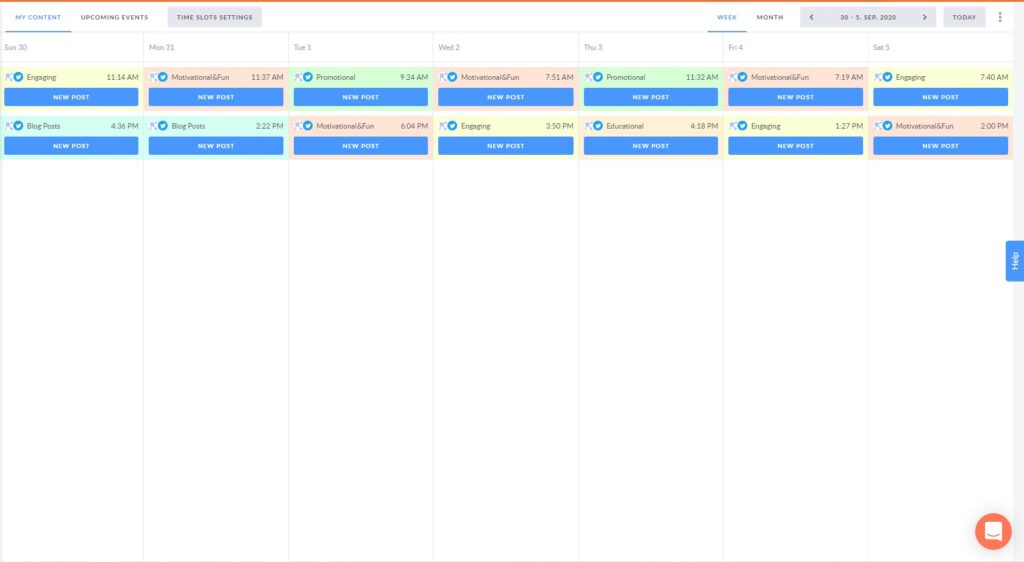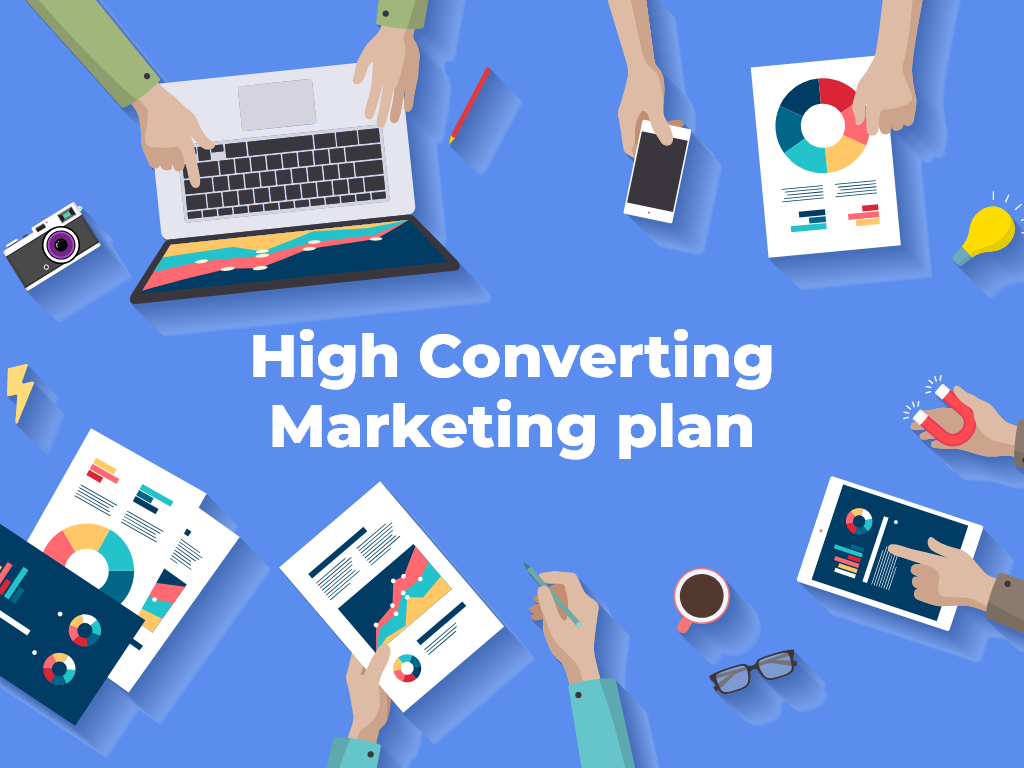The importance of having a solid marketing plan cannot be overstated. A good marketing plan defines your business goals and outlines the necessary milestones that will help you achieve them.
Far from just being a glorified idea board, it can also help you anticipate and weather any challenges that may come your way.
The Types of Marketing Plans Your Business Needs
Marketing plans come in many forms and can either tackle very specific details or paint your strategy in relatively broad strokes. Here are a few kinds of marketing plans that outline fairly different goals, but all serve the same purpose of helping you grow your business by generating revenue.
- Quarterly or Annual Marketing Plan
This particular kind of marketing plan outlines tactics and strategies with respect to a timeline. It usually includes specific time-bound milestones that need to be achieved. Utilizing this helps executives and business owners see the big picture of a campaign, and is usually created before a marketing strategy is formed.
Both annual and quarterly plans usually describe key performance indicators, budget allocation, and relevant marketing channels. To provide context to the goals presented, it’s also a good idea to include a few choice case studies and market research.
- Content Marketing Plan
Contrary to popular belief, a content marketing plan is more than just an editorial calendar. This should also contain your content goals, audience profiles, targeted keywords, and topic priorities.
Once you have all those figured out, then you can start working on your editorial calendar. Aside from telling you when to publish your content, the calendar should also specify the format, the content distribution channel, and the platforms that you are going to use in the publishing process.

Having an organized content marketing plan allows you to follow a consistent publishing schedule, which helps you measure growth accurately.
- Paid Marketing Plan
A paid marketing plan is a specialized type of marketing plan that deals with strategies concerning paid marketing methods.
This includes native advertising, pay-per-click ads, social media ads, and the like. It also contains the goals that you want to achieve through paid advertising options and outlines the specific steps necessary to achieve them.
A paid marketing plan looks almost exactly like a content marketing plan, differing only in implementation and the distribution channels used.
More often than not, this plan also includes funnel mapping and tracking, which is very useful in defining the message needed to execute campaigns properly. Sometimes, the paid marketing plan is embedded in the content marketing plan for an integrated marketing campaign.
Depending on your needs, you may need one or a combination of these three marketing plans.
The Elements of an Effective Marketing Plan
Despite these differences, an effective and useful marketing plan needs to have these three elements as well:
- Good Data
Market research is a must for every kind of business that wants to achieve growth in a sustainable and meaningful way. Information, such as market trends and competitor research, allows you to adapt and innovate ways to reach your own goals.
Having good data is even more important when it comes to digital marketing. This is achieved by using good marketing collaboration tools and live analytics software that allows you to get into the granular data and fine-tune your campaigns.
It’s worthwhile to note that data is only useful if arranged meaningfully. This means that a marketing plan should contain only the most relevant metrics to avoid confusion and enhance focus.
- SMART Goals
To be of any use, the goals you set for your business have to be Specific, Measurable, Attainable, Realistic, and Timebound. An example of a SMART goal would be to as follows:
"I will acquire 10 new clients for my digital marketing business within two months by doing search engine optimization on my website, launching a social media marketing campaign, and networking with local businesses. This will allow me to grow my business and increase my revenue."
The goal is specific and measurable because it defines the number of clients needed to increase revenue.
The goal is attainable because the necessary steps to be taken are already defined, and relevant because acquiring new clients is what directly drives business.
Meanwhile, giving yourself a timeline of two months makes it time-bound, and allows you to have a way of determining if a goal has been accomplished.
More than giving random numbers and timelines, goal-setting should be backed up by good data. You could be using the most advanced campaign projection tools and still completely miss the mark because of the lack of workable information.
- Concrete Strategy
Once you have secured your SMART goals and relevant data, it’s time to discuss strategy. This is because the tactics you use should always be informed by your goals and what your data tells you.
Your strategy is only as good as your data, so make sure that you are continuously looking for patterns in the data that tell you which rising trends could be indicative of your campaign’s success or if it needs some more tweaking.
Here are some things to consider while devising your strategy:
- Budget

Your budget is the lifeblood of your marketing operations and your business as a whole. Like everything else in business, the things you can do with your marketing campaign is entirely dependent on your capability of paying for it.
- Paid or Organic
Contrary to popular belief, organic and paid marketing efforts are not mutually exclusive. Organic marketing methods, like SEO campaigns, give you long-term results but can take a while to bear fruit. Meanwhile, paid methods, like PPC ads, may give you quick results, but it can be very expensive to run on a scale that makes it effective.
Together, both methods complement each other. This is because PPC ads are generally ineffective without brand equity—a facet that can only be achieved with a long-term brand building initiative like SEO campaigns.
On the flip side, PPC data, such as keyword rankings, can be leveraged by SEO campaigns to achieve the best results.
- Platforms or Software to Use
Running a marketing campaign involves a lot of moving parts, especially in digital marketing. Because the industry is relatively new and moves at such a fast pace, different platforms and channels end up using different names for the same metric.
Compound that with optimizing for your sales funnel and the whole process can be confusing and ineffective.
To solve that, you should be planning to use all-in-one marketing collaboration tools, much like what we offer through MarketPlan!
Tools like MarketPlan allows you to plan, execute, and implement your marketing plans in one place. This greatly reduces inefficiencies across the board and helps you plan and execute tweaks on your existing campaigns on the fly.
Conclusion
Marketing plans are supposed to guide your business decisions, but should not be treated as something unalterable when it comes to improving your campaign. This means that when new data comes along, you should be ready to make some changes right away!
Marketing plans should not strip you of your ability to adapt to any situation. If anything, it should allow you to look for any possible contingencies along the way, and help you keep a few steps ahead of your competition at all times.
Are you looking to boost your business’ marketing process through the use of marketing planning software? MarketPlan is an all-in-one marketing platform that allows businesses to plan, execute, project, and optimize their entire marketing strategy all from one powerful place. Sign up for free and try MarketPlan today!
